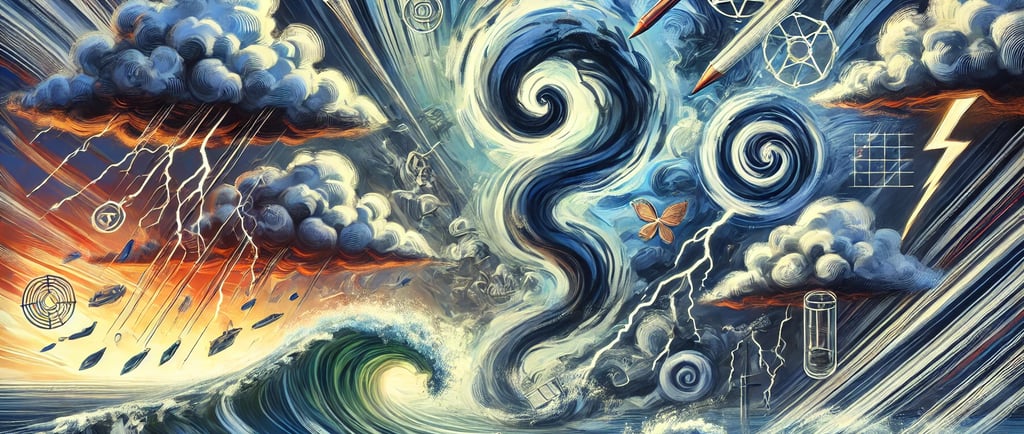Looking back at my notes, I believe February 22, 2023, was the first pivotal date in my "waking up" process.
That day, I logged onto the jw.org website and was greeted with a message that read:
"On Wednesday, February 22, 2023, it was announced at World Headquarters that Brother Anthony Morris III is no longer serving as a member of the Governing Body of Jehovah's Witnesses."
At first, I didn’t think much of it. Maybe a quick “Hmmm.” I might have mentioned it to my wife later, but it didn’t set off any alarm bells. It was like seeing a “Closed for Renovation” sign on a random store — you notice it, but you move on.
The real thinking began a few days later when that announcement quietly vanished from the website. No archive, no trace — like it had been memory-holed. I began to wonder if I had imagined it.
That same week, I had to travel to our local assembly hall, about an hour and a half away, for AV training for an upcoming assembly. On the way back, carpooling with two other Ministerial Servants, I threw the question out there:
"Did you hear that Tony Morris is not on the GB anymore?"
One friend was snoozing in the backseat, while the other, who was driving, confirmed he’d seen it too. He thought it was strange but quickly chalked it up to health reasons. There wasn’t much appetite for a longer discussion, so I left it at that
I also mentioned it to my mom on a phone call. She said, “Yes, I wrote down the date in my little notebook.” Ah yes, if it’s in the notebook, it’s real. But, like the others, she figured it was health-related and didn’t give it a second thought.
Then came the second, much bigger wave in my storm:
On March 9, 2023, news channels everywhere were covering the tragic shooting at a Kingdom Hall in Hamburg, Germany. I started looking up information, and that’s when I found myself on the EXJW Reddit page. I was expecting a den of apostate vipers, but what I found were normal, loving people — many of them ex-Witnesses—expressing sadness and concern for their former friends and family who were still in the organization. It was like finding out that the monster under the bed was just a pile of old socks.
Side note: I’d known about EXJW Reddit for years. Occasionally, I’d see a post or two if they came up in search results. But I treated it like a haunted house — curiosity might get you close, but you don’t actually go inside. If I did accidentally click, I’d close it fast, like it might burn my eyes with “apostate lies.”
As more news came out, I learned that my uncle — an elder — had been at that very Kingdom Hall just hours before the shooting. The closeness of the tragedy weighed on me. My curiosity turned into a need to understand, and about a week later, I stumbled upon an interview with the local Jehovah’s Witnesses spokesman, Michael Tsifidaris.
In the interview, when asked about the perceived difficulty of leaving the Jehovah’s Witnesses, Tsifidaris said it was very easy. You could just disassociate by writing a letter or making a simple oral declaration. Technically true, but in the same way that technically, you could “easily” leave an airplane mid-flight — you’d just have to ignore the 30,000-foot drop.
When I heard that, my mind immediately went to my father, who left 16 years ago. In my mind, it was inconceivable that it had been easy for him — he knew that leaving meant losing all contact with his sons, his family, and his friends. I hadn’t spoken to him for 16 years, and I hadn’t spoken to my sister for 20. I had shunned them, believing I was doing the right thing.
The way Tsifidaris brushed off the shunning practice felt like a punch to the gut. I realized that leaving wasn’t just “easy” — it was emotionally devastating. Then came the question I never thought I’d ask:
"Am I in a cult?"
Cue the mental spiraling. Something was very wrong. I started researching the shunning practice, but I began with the “approved” sources — Watchtower publications and the official website.
When I was an active Jehovah’s Witness, I’d been strict about shunning. Not just disfellowshipped individuals, but anyone who seemed like “bad association.” I figured, why wait for an official judgment when I could take a proactive approach — like preemptively blocking someone on social media, but with actual people.
This extreme stance I held about shunning also led to a major internal conflict when I was confronted with a bit of early teenage rebellion from our younger son. Suddenly, theory met reality — and reality won. I realized that no matter what he did, he would always be my son. I loved him, full stop. There was no version of my life where I could shun my own child.
This was yet another ingredient in the "perfect storm" that led to my awakening. But before diving into that, let's get back to my research rabbit hole.
For most of my life, I had firmly believed that contact with disfellowshipped family members should be limited to only urgent family business. I mean, I practiced it myself, going 15-20 years with no contact with two of my immediate family members. So you can imagine my shock when I stumbled upon an FAQ article on the JW.org website that said:
"Normal family affections and dealings continue."
Wait, what? How could that be true when my experience had been the polar opposite? It felt like someone had switched the script while I wasn’t looking.
I dug deeper and found Watchtower Lawyer David Gnam making the same claim in front of the Canadian Supreme Court — boldly stating that disfellowshipped individuals are not cut off from normal family relationships. It was such a blatant lie that I had to replay it to make sure my ears weren’t deceiving me.
By the end of April 2023, two elders came by for a shepherding visit. I pointed out the discrepancy on the JW website and expressed my disappointment in seeing such obvious dishonesty, especially about something that had impacted my life so profoundly.
One elder quickly explained it away: “Oh, the article is just missing a small detail. It only applies if the disfellowshipped family member lives under the same roof.”
I sat there, stunned. Did God really care about postal codes and mailing addresses? Was divine love restricted by a change of address form? Their vague, dismissive answers left me more unsettled than ever.
And all of this was happening right when I was putting my best effort into being a "model" Jehovah’s Witness.
I had decided it was time to get serious about a few things I’d been letting slide for way too long. Case in point: our “blood cards.” I don’t even remember how many years had passed since I last updated them, even though the topic of blood transfusions comes up at least once a year at the midweek meetings.
Determined to get things in order, I told my wife I’d do some research to prepare for our family worship night. The goal? To make informed decisions about medical treatment and the whole “no blood transfusion” rule. I went all out — researching, drawing a massive diagram of whole blood, its four main components, and all the fractions within those components. It was like high school biology, only this time I was actually interested.
But as I started putting the pieces together, unease crept in. Especially when I saw the percentages of all those blood fractions. If accepting blood fractions was a matter of personal conscience, then what percentage of a blood component was “okay” for me? It felt a bit like trying to decide how much violence in a movie would be acceptable for a good Christian. Was 10% okay? How about 30%? How on earth do you quantify that?
Then things got even messier when I stumbled upon medical studies showing that white blood cells (leukocytes) naturally occur in breast milk — and in especially high quantities in colostrum. You know, that first superfood milk every newborn should get. I couldn’t wrap my head around it.
Why would God design mothers to produce milk with a high amount of white blood cells for their babies, only to turn around and say, “Oh, but don’t ingest blood!”? The contradiction gnawed at me.
I started picturing scenarios with my own kids and others. What if a baby needed a blood transfusion to survive? Would I refuse it and let the baby die because of a biblical interpretation, knowing full well that breastfeeding would provide the baby with a similar blood component anyway?
This revelation hit me hard. How could I have been so clueless about this for so long?
The more I thought about it, the less sense it made. Looking back, this internal questioning probably started right before the other events I mentioned earlier. In the end, it was yet another foundation block yanked out of the precarious tower of my faith.
And that’s just the beginning.
And so, the perfect storm raged on. It wasn’t just a single event—it was a mix of little revelations, uncomfortable truths, and a lot of late-night research. Each gust of wind tore away another layer of my belief, until eventually, I found myself standing in the clear, mentally out but still physically very much in at the time.
In future posts, I’ll dive deeper into specific aspects of this story. What came next was a whirlwind for our family, and in the next post, I’ll share how my discoveries affected us and how we navigated this massive shift in our lives.
Stay tuned — there’s a lot more to unpack.


